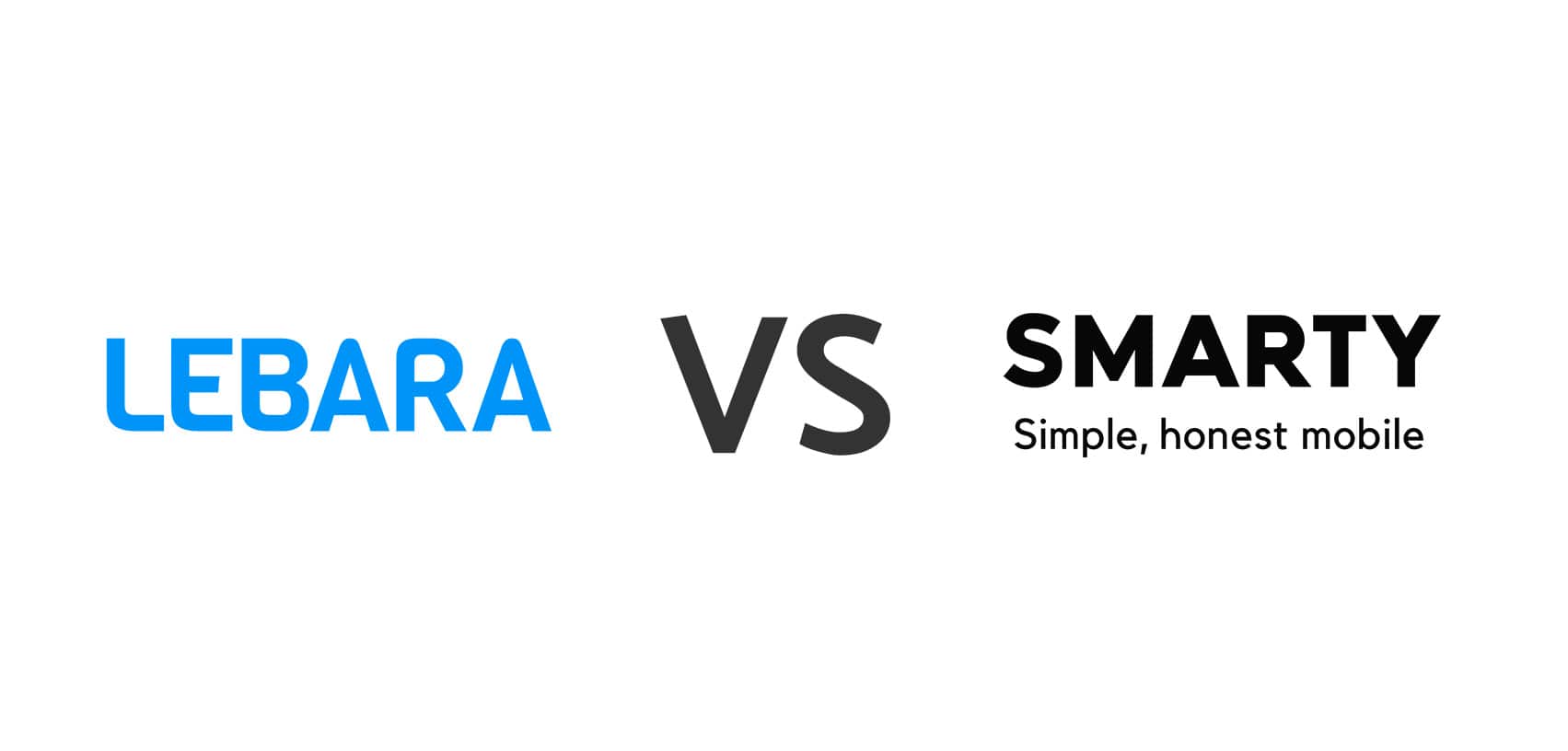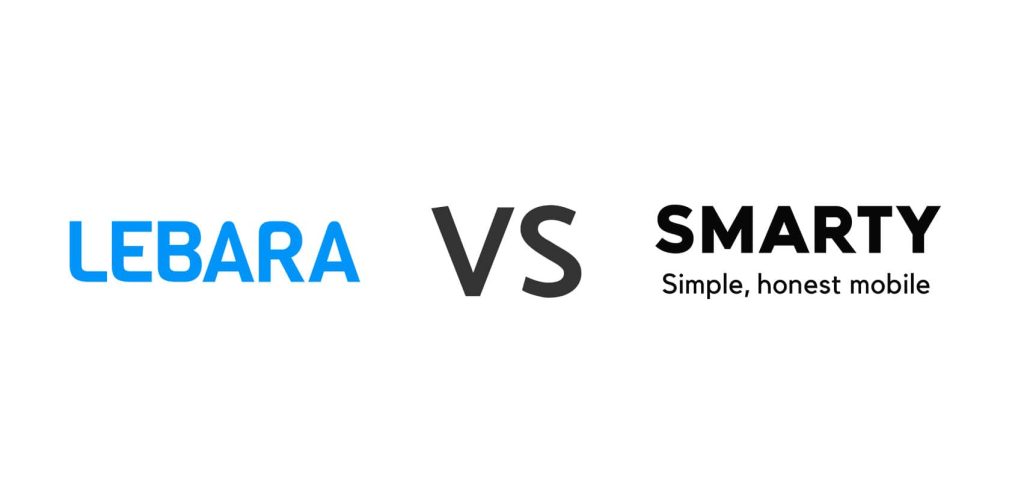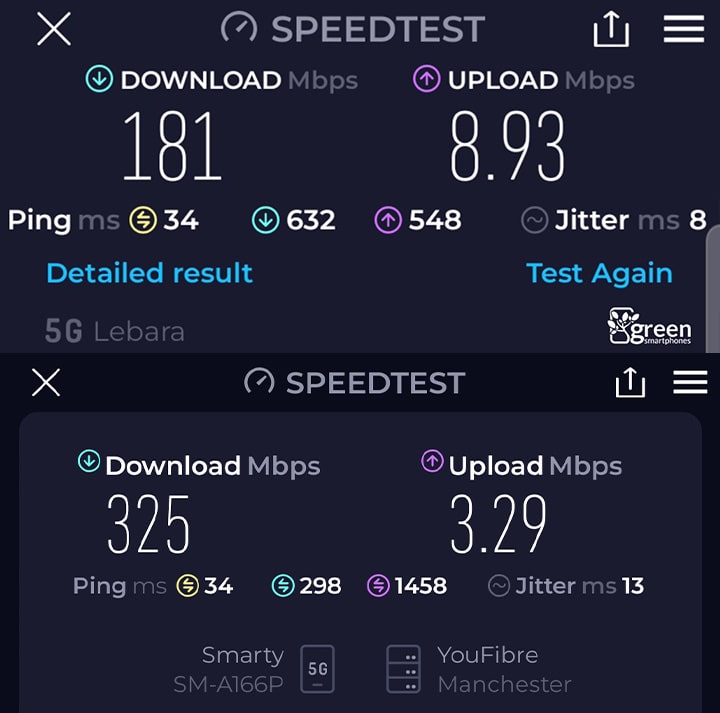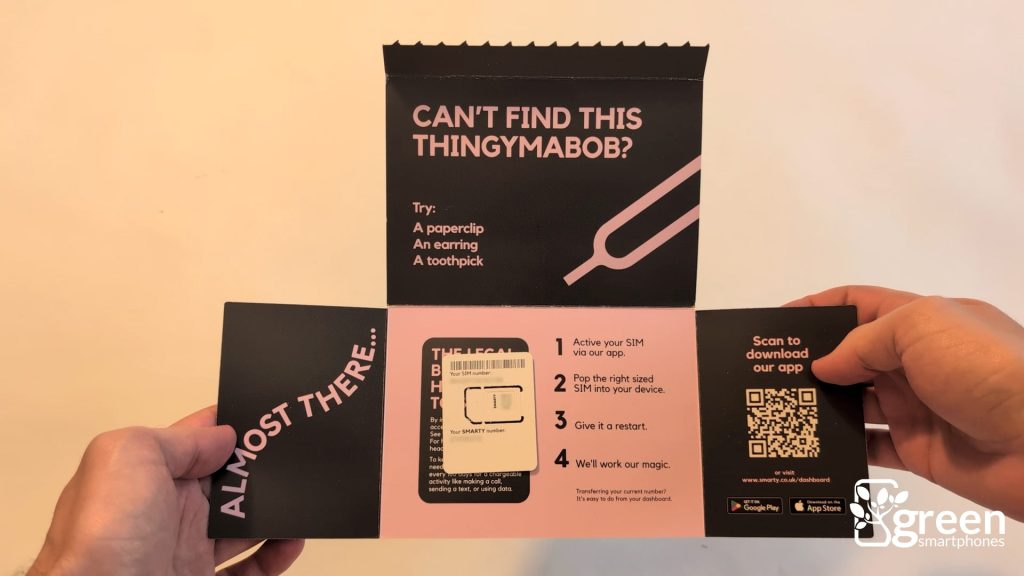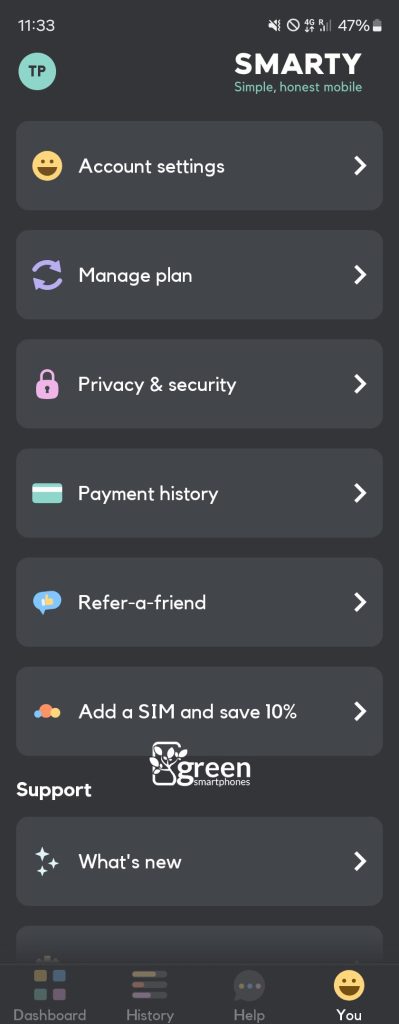Not sure whether to buy a SIM from Lebara or Smarty?
In this article, we’ve compared these two mobile networks, to see which is the best option to join at the moment.
We’ve compared Smarty and Lebara based on their coverage and speeds, value for money, customer service, and more, to help you decide between them.
Before we begin, if you’re searching for a new mobile plan, on any network, use our comparison site to find the cheapest pay monthly phone plans or SIM-only deals on the market right now.
Contents
- Overview
- Coverage and speeds
- Roaming allowances
- Value for money
- Customer service
- Verdict: should you join Lebara or Smarty?
Overview
Lebara and Smarty are both mobile virtual network operators (MVNOs) available in the UK.
Lebara uses the Vodafone network to service its customers. On the other hand, Smarty is owned by Three, and they use their infrastructure to provide connectivity.
Now that Vodafone and Three have merged their operations, Smarty customers are beginning to get access to the Vodafone network as well, in areas where it provides stronger signal than Three.
However, this network sharing arrangement is still rolling out, and it remains to be seen how much of an effect this will have on the speeds and signal you can expect to receive as a Smarty SIM user.
Smarty and Lebara both focus on offering cheap SIM-only deals, which all come with unlimited inclusive calls and texts to UK mobiles and landlines.
Neither Smarty nor Lebara offers handset contracts at the moment. Though, Lebara does have a partnership with AO, allowing you to buy no-contract phones on their website.
The main difference between the two providers’ plans is, Lebara offers more extra benefits – especially in terms of roaming – but we’ll discuss international usage a bit more later in the article.
Also, Lebara is the only one of these two providers to offer pay monthly contracts, whereby you can commit for a year to get a lower monthly cost.
All of Smarty’s tariffs renew on a pay as you go or rolling monthly basis, with no credit check required to buy – you can choose to top up your SIM whenever you need to.
Both networks support WiFi and VoLTE calling, but Smarty is the only one of these two providers that offers the ability to buy an eSIM at the moment.
Coverage and speeds
On 4G, Lebara and Smarty are about equal.
The Three and Vodafone networks both perform well in terms of 4G speeds and coverage. They’re not the best in the UK – this honour goes to EE – but they provide consistent service in our experience.
We get good signal even in remote villages on both Lebara and Smarty, in our area of the West Midlands.
With Three’s merger with Vodafone, we expect Smarty’s 4G performance may begin to improve further in the near future, as more network sharing arrangements come online, and more coverage gaps get filled.
Currently, Lebara does not have a deal to access the Three network, so their customers will remain with just Vodafone access for the time being at least.
Three currently has the fastest average 5G speeds of any of the major networks, so Smarty outperforms Vodafone when it comes to download speeds – though their 5G uploads could be a bit better.
Fortunately, neither network has any speed caps on any of their tariffs, which isn’t the case when buying from Vodafone directly.
So, in areas with good signal, you can still get very fast download speeds of 200 Mbps or more with a Lebara SIM card, though Smarty will generally be faster.
Roaming allowances
Lebara is a really good choice if you want a cheap SIM with great inclusive roaming allowances.
By contrast, Smarty does well compared to some other MVNOs, but they’re not as good as Lebara.
With a Smarty SIM, you can use up to 12GB of data each month (or your regular data limit, whichever is higher) in many European countries.
This may seem a bit restrictive, especially if you have an unlimited data SIM, but compared to most other cheap MVNOs, it’s a decent fair usage limit to have.
The downside to Smarty roaming is, outside the EU, you’ll need to top up your account and pay as you go for usage, which can get very expensive.
On the other hand, as a Lebara customer, you get a much higher 30GB monthly roaming allowance, and this also covers India – not just the EU – which is great.
Beyond the default roaming destinations, there are reasonably priced add-ons you can choose to buy to get online, so you don’t have to pay per megabyte of data used in countries like the United States.
And with a Lebara SIM, you also normally get a certain number of inclusive international calling minutes each month to certain countries, which very few other MVNOs offer at the moment.
So while Smarty’s inclusive roaming allowances aren’t bad, at least in the EU, Lebara is a much better choice for frequent international travellers.
Value for money
Smarty is generally cheaper than Lebara, just because their SIM plans are more basic.
If you compare the cost of SIM deals on both networks, which you can do using our comparison site, Smarty is generally a bit less expensive. They also often have a larger range of tariffs to choose from, allowing you to find the plan with the right amount of data for your needs, and potentially helping you save a bit of money.
However, Lebara does give you the option to commit to a 12 month contract to access a lower monthly cost, if you want a SIM plan to use for the long term.
And with Smarty, you do miss out on certain perks that you get with Lebara – such as a higher inclusive roaming limit, and better customer service, which we’ll discuss below.
Customer service
Lebara is one of the few MVNOs that has a phone number you can call to reach their team.
This means it’s easy to speak with a real person to get help as a Lebara customer, and their support agents are quite knowledgeable from our experience.
According to Trustpilot, Lebara has one of the highest customer satisfaction ratings of any British mobile network, likely thanks to the quality of the support they’re providing.
With Smarty, they don’t have a phone number you can call to reach them. Instead, you’ll need to use live chat to get in touch.
While Smarty’s customer service agents are also helpful, they’re not as easy to reach, and sometimes the live chat can get a bit busy during peak hours.
The one advantage Smarty has over Lebara from a customer service point of view is their mobile app.
From our testing, we find the Smarty app more useful and more intuitive to use than Lebara’s one.
It makes it quite easy to manage the key things you might need to do on a semi-regular basis with a Smarty SIM, such as monitoring data usage and topping up your SIM.
Verdict: should you join Lebara or Smarty?
Whether Smarty or Lebara is the right choice for you depends a bit on what you’re looking for in a mobile network.
- Lebara is a better choice if you often travel for extended periods, especially outside of Europe.
- Smarty is a better option if you want to save as much money as possible, without committing to a long-term contract.
- Lebara offers better ways of getting customer support, especially if you prefer to get in touch over the phone.
- Smarty offers faster 5G speeds, and will potentially benefit from network sharing with Vodafone as the merger process with Three completes.
We personally prefer Smarty over Lebara, because we tend to buy separate eSIMs when travelling internationally, and we get really fast 5G from Three in our area.
If you’re still not sure which network to choose, leave us a comment below, and we’ll reply as soon as we can.
About the author

Tom is the founder of Green Smartphones. You’ll find him writing about phones on the Green Smartphones blog, or talking about SIM deals and mobile networks on our YouTube channel. He’s the Android expert on the team – currently using a Google Pixel 9, recently upgrading from a very long-suffering Note 20 Ultra. When he’s not working on Green Smartphones, you’ll find him playing football or hiking.


